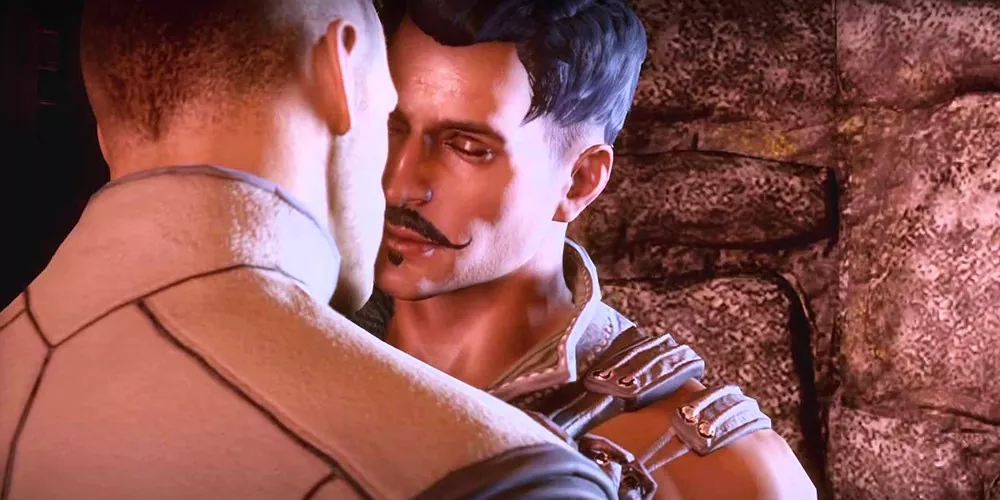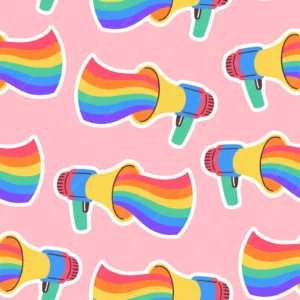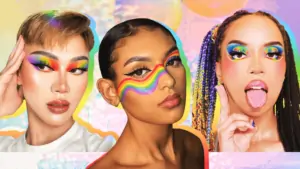Gaming isn’t just a hobby anymore; it’s a culture, a space that’s growing more inclusive, especially for the LGBTQ+ community. In India, the gaming scene has witnessed a surge in what many call “gaymers”. However, amid this surge lies an undercurrent of negativity and discomfort for queer individuals, a simmering issue worth exploring.
For many queer gamers, the world of gaming serves as a haven, and when Caravan asked Nick, a 30 old nonbinary transmasculine Individual from Delhi said, “Gaming is a way where I can break out of the rules of this universe and be anyone who I want to be. It’s a different world where I may be accepted as I am.”
The newer gaming landscape offers a spectrum of choices, from characters in games like Ellie and Lex in Last of Us 2 or Judy Alvarez in Cyberpunk 2077 to romantic connections with teammates enabling queer Individuals to authentically express themselves.

Moreover, Nick also talked about how playing games where you pretend to be someone else helped him feel more in control as a nonbinary. In these games, what he chose to do had a big impact, unlike in real life where it’s not always so clear. But while he found comfort in gaming, toxic behaviors like bullying, discrimination, and homophobia, made it harder for him.
LGBTQ+ Gamers’ Encounters
Online gaming environments, particularly in popular communities like PUBG and Call of Duty, often cultivate toxic atmospheres where LGBTQ+ individuals face severe bullying and mockery. Hate speech, derogatory remarks, and targeted harassment based on sexual orientation are distressingly prevalent.
Queer gamers frequently encounter discrimination, exclusion, and degrading jokes, contributing to an unwelcoming atmosphere that undermines their gaming experiences and sense of safety within these communities.

This toxic atmosphere can make LGBTQ+ gamers feel unwelcome, unsafe, and reluctant to engage fully in these communities, hindering their ability to enjoy the gaming experience on an equal footing with their peers.
What the Global Survey Says
Global surveys, like the one conducted by OnlineRoulette.org in 2020, shed light on the harsh realities faced by LGBTQ+ gamers globally. Shockingly, out LGBTQ+ gamers are 21% more likely to experience harassment, with a staggering 73% facing harassment linked to their sexuality.
The figures climb even higher for lesbian gamers, reaching an alarming 83%. Consequently, 41% of LGBTQ+ players avoid certain games and toxic communities due to this rampant harassment. It’s a disheartening revelation, painting a grim picture of the gaming world’s present state.

Changing Dynamics Towards Gaymers
However, amidst these challenges, there’s a glimmer of hope. The same survey reveals that 45% of LGBTQ+ players discovered their sexuality through gaming, underscoring the significant role games and supportive communities play in their lives.
Moreover, 71% of respondents highlighted that online gaming communities were more supportive of their sexual identities than their real-life counterparts. Representation matters too, with 81% expressing a preference for games featuring queer storylines, emphasizing the need for more inclusive narratives in gaming.
Katherine Cross, 26 who regularly plays Fortnite and League of Legends says, “The more games we have with LGBTQ characters that are presented positively, the more young queer people will see themselves reflected in media and know that they’re not alone.”

Despite the hurdles, the Indian gaming landscape is evolving. Games like Animal Crossing provide LGBTQ+ gamers with inclusive spaces, nurturing environments where queer content is becoming more prevalent. Although broader society might not yet offer the support that sexually diverse gamers yearn for, but specific gaming communities are stepping up.
“We’re seeing more platforms, forums, and communities actively advocating for diversity and respect, fostering a sense of belonging beyond just representation within games themselves,” says Alex Johnson, who identifies as Transmale.
Conclusion
Gaming, once an escape, is slowly transforming into a sanctuary where diverse identities are acknowledged and celebrated. As the gaming landscape continues to evolve, the hope is for a future where all gamers, irrespective of their sexual orientation, can play without fear and embrace their true selves in the pixels and storylines that define their virtual adventures.



